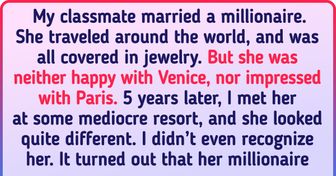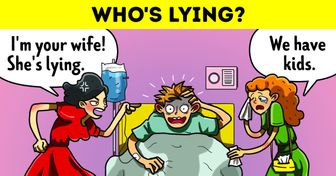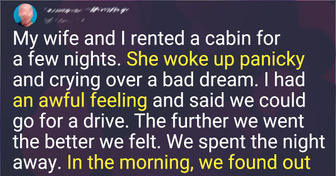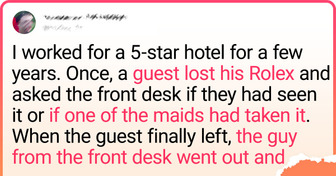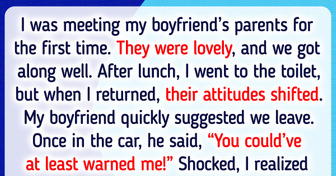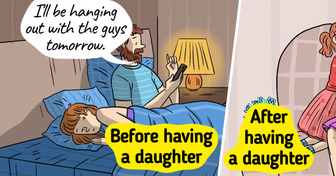10 People Reveal Their “Don’t Tell Mom About This” Moments

Some strange seismic activity begins all over the world. Volcanoes on the planet are waking up. But instead of lava, fiery stones, and black ash, they release an invisible gas that slowly fills the atmosphere.
This gas is safe for all mammals and insects, but for some reason, it harms people. Gas masks, medications — nothing helps. It’s like Earth says: “Hey, people, I’ve had enough! Get out of here.” To survive, humanity decides to move to a place where gas can’t reach — underwater.
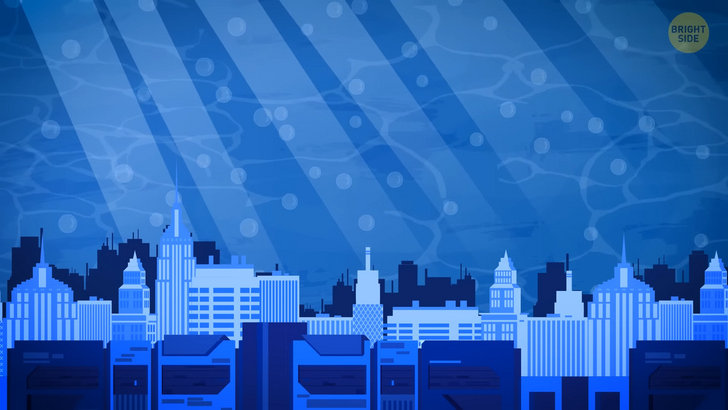
We begin global migration to the seas and oceans. The first thing we need to do is build underwater cities. Engineers use anti-corrosive metals and building materials that are not destroyed by moisture, so there are no problems with the construction. But there are too many people on the planet, which means we need to move further and further from the shore. And the deeper the bottom, the stronger the pressure.
To build an ordinary underwater house, it’s necessary to create equipment capable of withstanding the water column. Also, it requires expensive materials. Stainless steel is not enough. There should be strong alloys of metals to resist colossal pressure. All this takes a lot of time, and while some are building cities moving deeper foot by foot, others are crowding in coastal parts.
Ponds and lakes are becoming the best places to live. Firstly, it’s much easier to swim in freshwater. People spend much less energy and time on movements there. Secondly, fresh water doesn’t require powerful filtration used in seas and oceans. And thirdly, there are fewer people in ponds and lakes, which makes the water cleaner. Therefore, all the rich people live there, and the poor survive in the oceans.
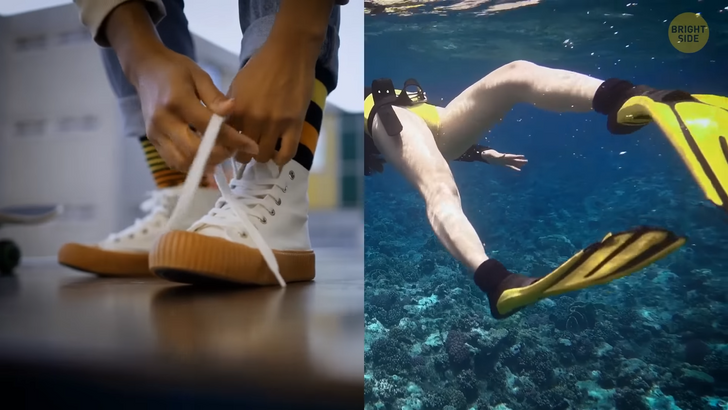
Famous auto brands create stylish submarines and closed boats with filtration systems. Scientists, together with engineers, come up with a technology that quickly extracts oxygen from water. One box with this technology constantly fills every house with fresh air. And another special box sucks all the carbon dioxide out of the room and releases it into the water.
Clothing brands create stylish diving suits. The ocean is cold, so designers install a heating system inside clothing. People used to collect sneakers, but now they wear fashionable fins. There are thousands of fin designs with various engravings and patterns.
People create underwater mills to generate electricity and build underwater vacuum pipes inside which high-speed trains drive. But the most remarkable thing is aquatic farms where livestock eats grass and seeds. There are also incubators with plants that produce extra oxygen.

The human body is also changing. The skin becomes smoother, and the muscles get stronger. Life in the ocean is a continuous overcoming of water resistance. And you also need to carry an oxygen tank with you, so every day is like good training in the gym. Take a look at the Olympic swimming champions! Now, most people have such a figure.
Doctors, biologists, and engineers unite to create unique masks that allow people to breathe in the water like fish without oxygen tanks. People get much less sunlight underwater and lose vitamin D. This causes depression and weakens the immune system. To fix this problem, scientists build huge ultraviolet lamps that illuminate the entire seabed.
People are getting used to a new life. In a sense, it’s not much different from the previous one. Everyone also goes to cafes, cinemas, shopping, and the gym. People get an education, work, and use the same law system. Only now, instead of walking down the streets, they swim.
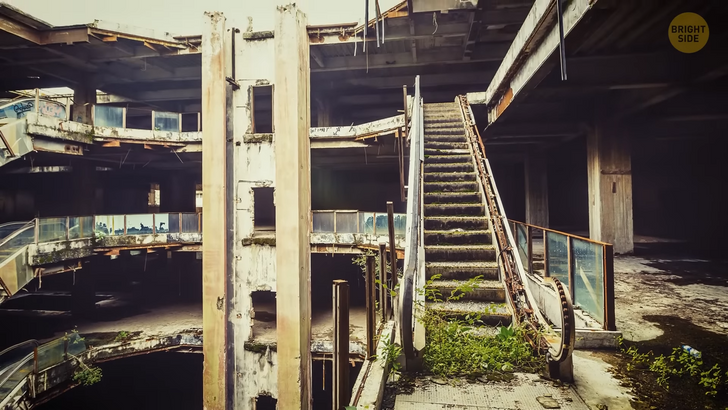
Water resources are rich in oil, minerals, and other valuable things. This ensures the growth of the economy. Megacities have appeared in the deep waters of the oceans, and seas and lakes are becoming resorts. The conditions on the surface become completely unsuitable for humans, and the next generations don’t even know what it is like to live on land.
Meanwhile, tracks of people on the surface disappear. Abandoned houses are overgrown with moss and vines. Animals fill cities. Seismic activity causes earthquakes that carry all buildings underground. Humanity made room for new species — fish.
Several hundred million years ago, the ocean was inhabited by giant monsters. The smaller fish couldn’t fight these big guys, so they swam as close to the shore as possible. Then, over the years of evolution, they began to change. Fish grew limbs and learned to crawl on the ground. And so, after a couple of hundred million years, they began to turn into mammals. And after that, people appeared. At least, that’s what the theory of evolution says.
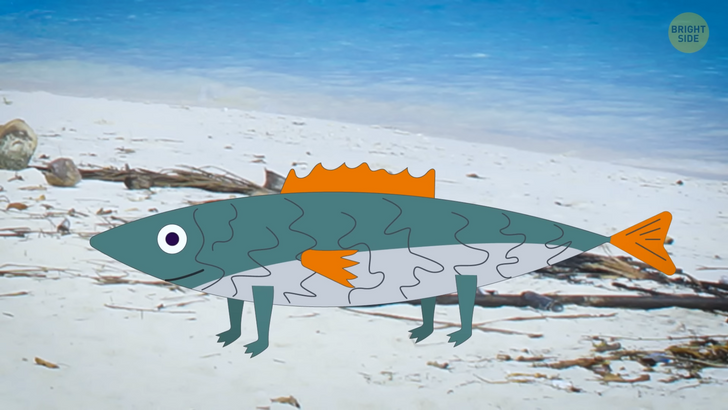
Approximately the same story happened with modern fish. Only instead of sea monsters, they faced people in the ocean. Bright light, oxygen consumption, emissions of harmful gasses, and garbage forced the fish to migrate first into the depths of the oceans. And then, as humans began to master the depths, the fish swam to the surface. But not because there wasn’t enough space in the ocean, but because people started catching too much fish.
It’s problematic to grow grains, fruits, and vegetables underwater, even in closed farms. Therefore, to replenish the food supply, people just started fishing. To survive, the marine inhabitants had to swim to the surface.
Now fish grow limbs to crawl. But, when the dangers of people are left behind, the fish face a new problem. Mammals. The population of bears, tigers, wolves, and all animals has increased since people left the surface. Now the predators are the rulers of the continents. The hardest struggle for survival begins.
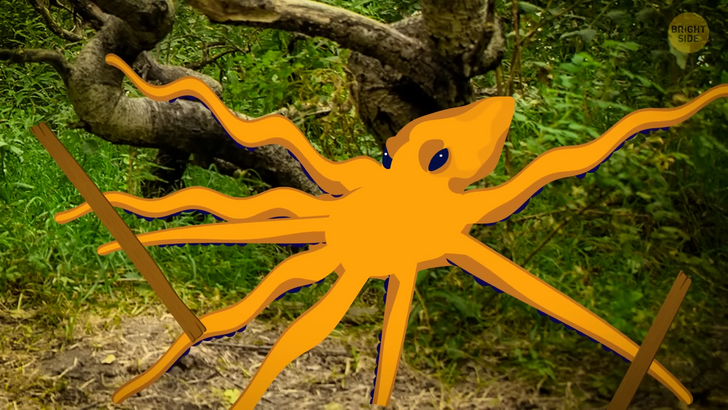
Fish learn to disguise themselves to hide from enemies. Many grow venomous spines, while others gain the ability to strike hard with their fins. But octopuses evolve the fastest. These clever creatures are the first to grab sticks and stones to fend off bears. They learn to dig holes in the ground and pluck fruit from trees. And soon, they become heads of the sea kingdom.
Meanwhile, people are building powerful spaceships to find another planet to inhabit. There’s too little space in the ocean. And the water is too dirty. Ventilation systems are pumping too much oxygen out of the ocean, releasing a lot of carbon dioxide. Seaweed and phytoplankton, which provide more than half of the world’s oxygen reserves, are disappearing because of human activity.
People understand they have to leave Earth. Gradual migration begins. Humanity has been evacuated from the planet on giant ships for several centuries. They are flying to an exoplanet just a couple of hundred light-years from Earth.
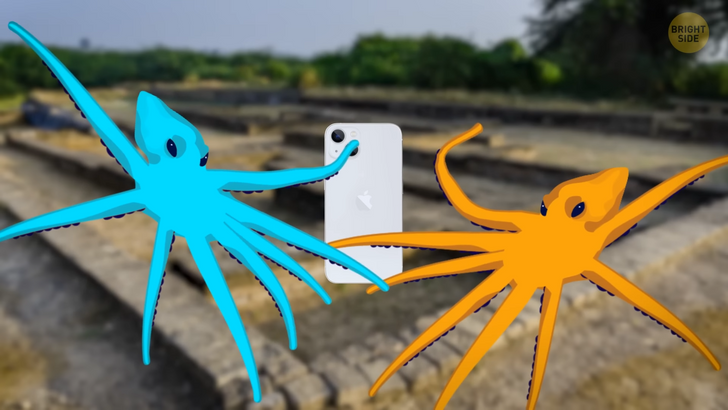
Octopuses are becoming more intelligent than mammals. They see millions of giant ships flying out of the ocean and rising to the sky. The picture seems familiar to them. There’s a memory of similar events somewhere in the depths of their DNA.
The brain of octopuses develops faster thanks to the gas coming from volcanoes. They become full-fledged masters of Earth. Animals and fish live next to them as pets. Then the octopuses build houses, invent the wheel, and open fire. From this moment, a new history of the planet begins — the era of octopuses.
They create their civilization and find traces of the old one. Archaeologists with tentacles suggest that strange creatures lived on Earth once upon a time. They had four limbs and could walk upright. These creatures built their civilization here, but something happened, and these guys just disappeared.
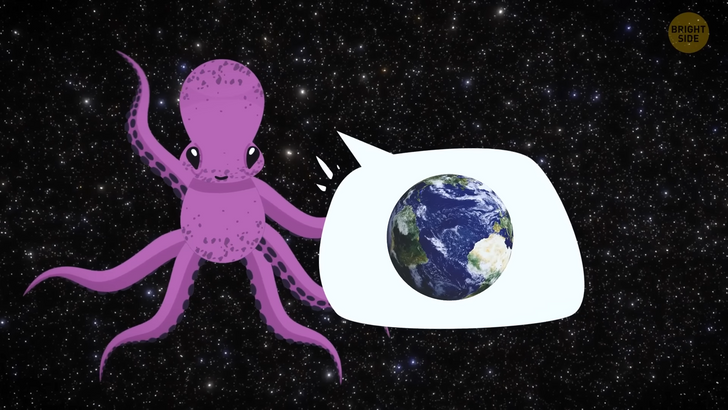
And while the octopuses are trying to figure out what happened to the previous civilization, people surf the expanses of space and meet a new, highly intelligent life. These humanoids look like octopuses since they have long tentacles, large eyes, and a developed brain. They tell people that once upon a time, they lived on planet Earth, but then plants and trees began to emit something called oxygen that poisoned the air.
At first, the octopuses hid in the ocean, but oxygen filled the water. So they decided to leave the planet. Some of them adapted to the new conditions and stayed in the water with the fish. People tell them what happened next, including the history of humankind. The space octopuses realize that the story has now looped.

